7 Must-Have Wire Wrapping Tools for Stunning Handcrafted Jewelry
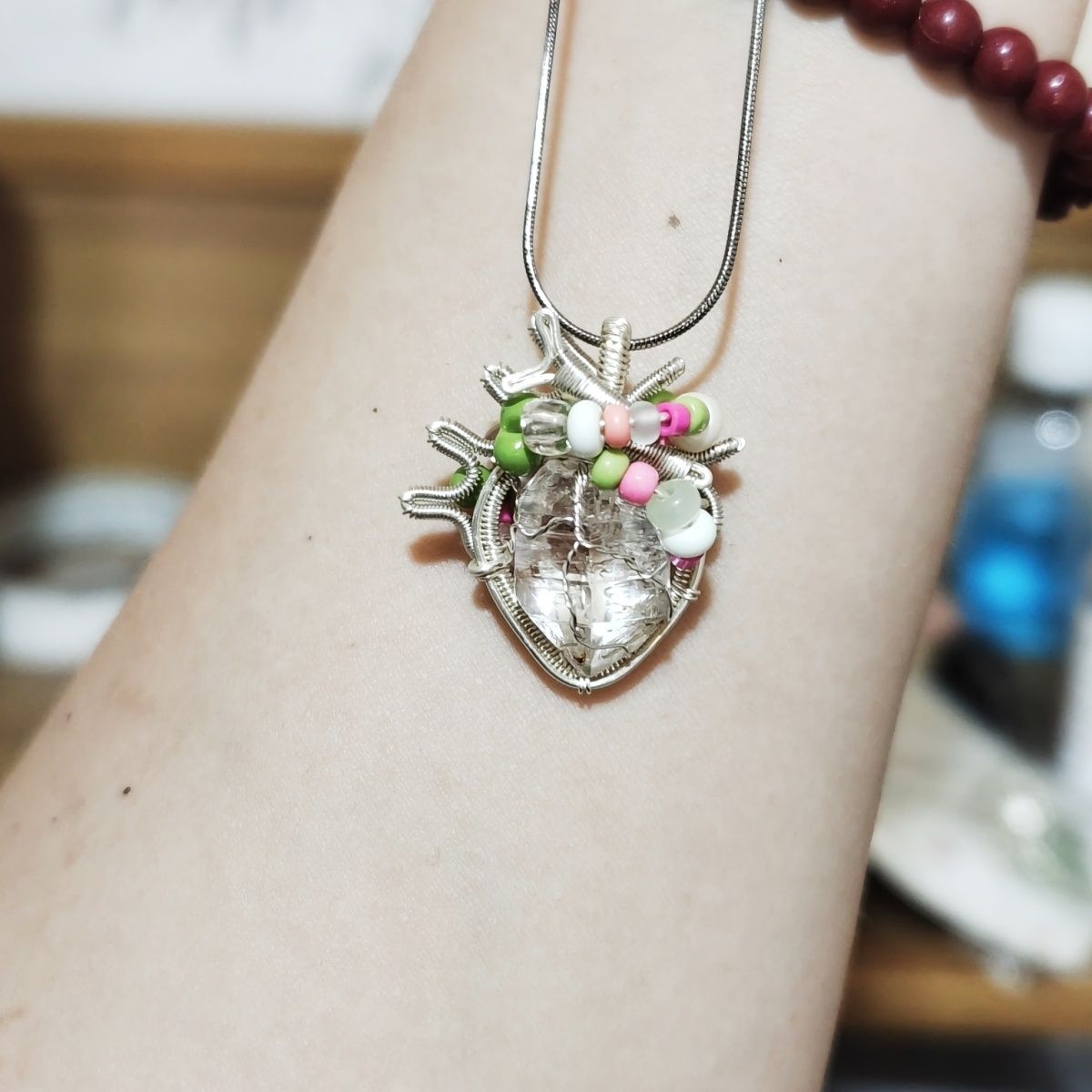
Discover the professional toolkit that transforms raw wire and stones into wearable art. This comprehensive guide reveals the essential instruments every aspiring wire wrapper needs, with pro tips for selecting quality tools that last.
Why Quality Tools Make All the Difference
Professional jewelers agree: Your tools are an extension of your creative vision. Investing in proper instruments prevents wire damage, reduces hand fatigue, and ensures precise results. According to Jewelry Crafts Magazine, beginners using proper tools improve technique 3x faster than those using improvised equipment.
Tool Quality Checklist:
Precision-ground jaws for mark-free wire handling
Spring-loaded handles for reduced hand strain
The Core 7 Tools Every Wire Artist Needs
1. Round Nose Pliers
Primary Use: Creating perfect loops and curves
Pro Tip: Choose with tapered jaws for multiple loop sizes
2. Chain Nose Pliers
Primary Use: Gripping, bending, and tightening wire
Pro Tip: Look for serrated interior jaws for secure grip
3. Flush Cutters
Primary Use: Cutting wire with smooth edges
Pro Tip: Angled cutters provide better visibility
4. Nylon Jaw Pliers
Primary Use: Straightening wire without marks
Pro Tip: Essential for work-hardened wire
Specialty Tools for Advanced Techniques
Bail Forming Pliers
Creates consistent pendant bails. Look for interchangeable tips for multiple bail sizes.
Ring Mandrel
Essential for shaping rings and bangles. Choose steel over plastic for durability.
Setting Up Your Workspace
Lighting Essentials
Use adjustable LED lamps with 5000K color temperature. Position lights at 45° angles to prevent shadows on your work area.
Anti-Slip Surfaces
Use silicone mats or leather pads to prevent tools from rolling. This also protects stones from scratches during work.
Tool Maintenance Guide
| Tool | Cleaning Frequency | Proper Method | Storage Tips |
|---|---|---|---|
| Cutting Tools | After each project | Brush with brass wire brush | Store with blade guards |
| Pliers & Grippers | Weekly | Wipe with rubbing alcohol | Hang vertically |
| Mandrels & Forms | Monthly | Polish with fine steel wool | Lay flat in drawers |
Get Our Complete Beginner’s Toolkit Guide
Download our free 15-page PDF with tool comparisons, maintenance schedules, and setup diagrams
Download Free GuideWire Tool FAQs
What’s the one tool professionals won’t compromise on?
Flush cutters. Professionals invest in high-quality cutters ($25-$50 range) because clean cuts are fundamental to professional finishes. Cheap cutters leave sharp edges that snag clothing and scratch skin.
Can I use regular pliers from the hardware store?
While possible for absolute beginners, hardware pliers have serrated jaws that damage wire surfaces. Jewelry-specific pliers have smooth, polished jaws that protect your materials and create cleaner bends.
How much should I budget for a starter toolkit?
Plan for $75-$150 for quality entry-level tools. The “buy nice or buy twice” rule applies – cheap tools wear out quickly and limit technique development. Focus on the core 4 tools first: round nose, chain nose, cutters, and nylon jaw pliers.

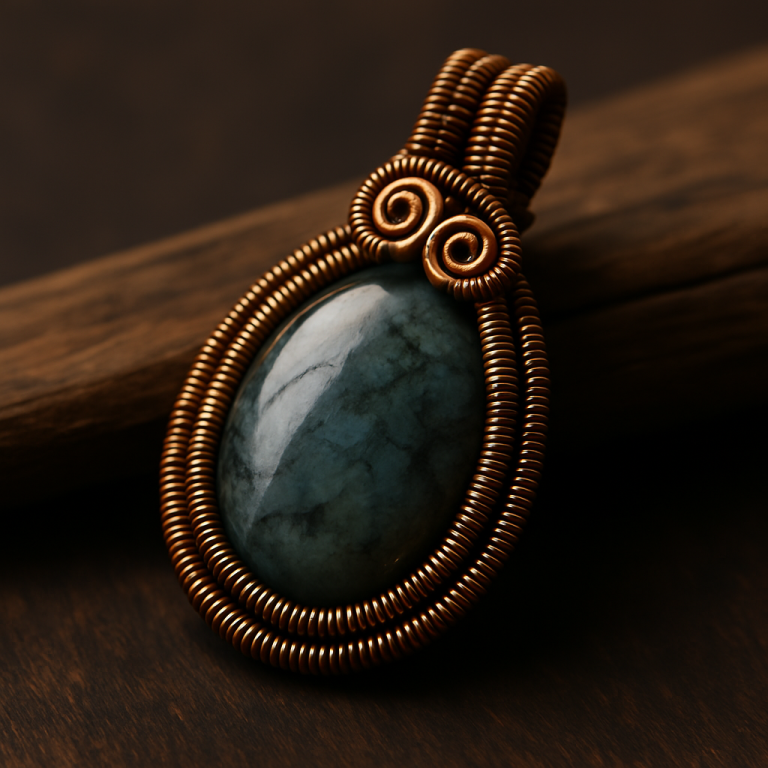
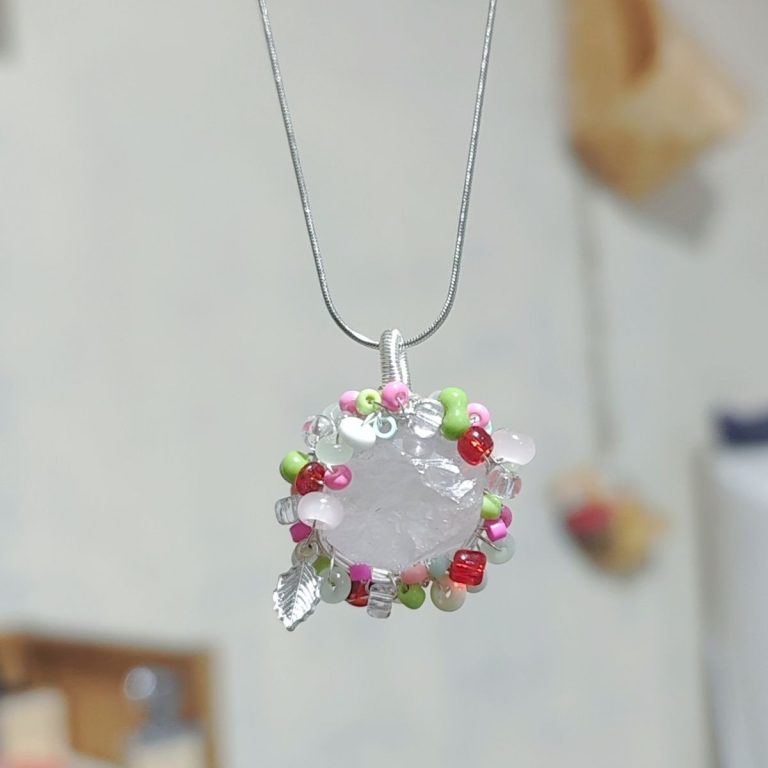
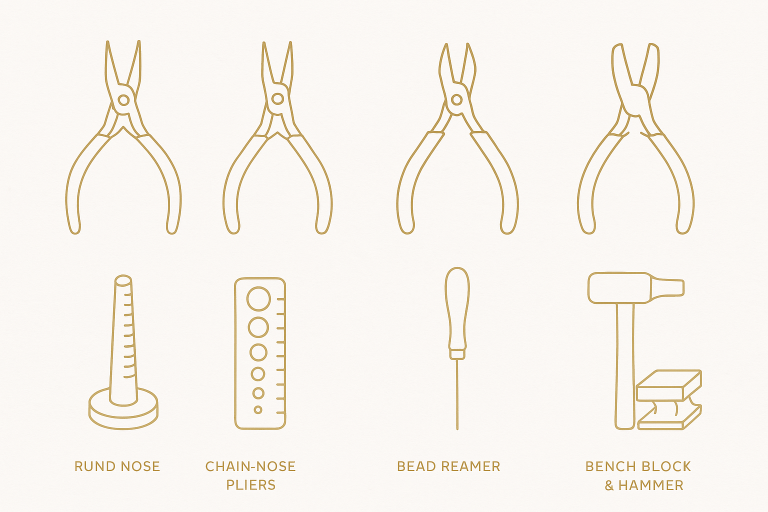
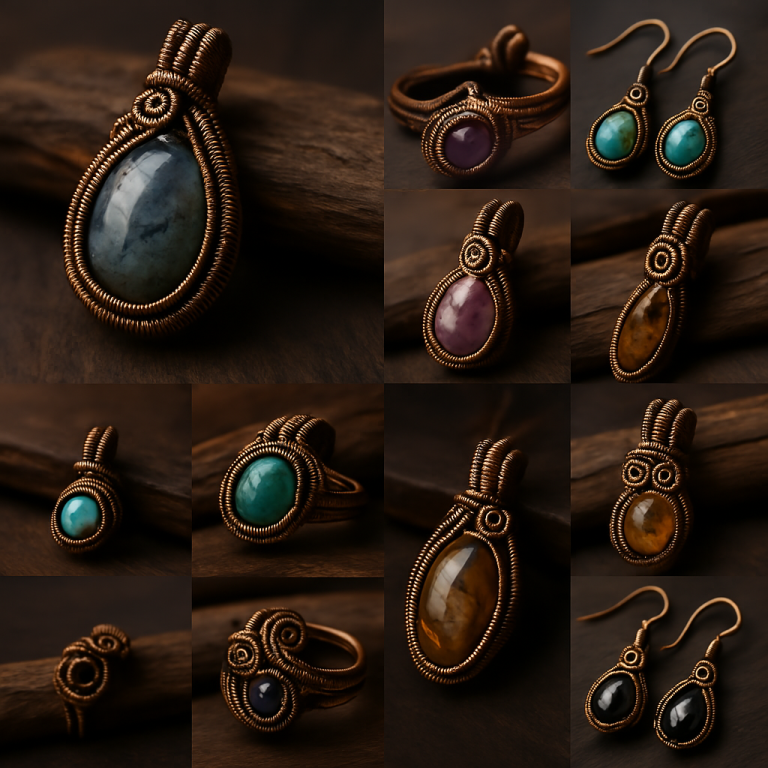
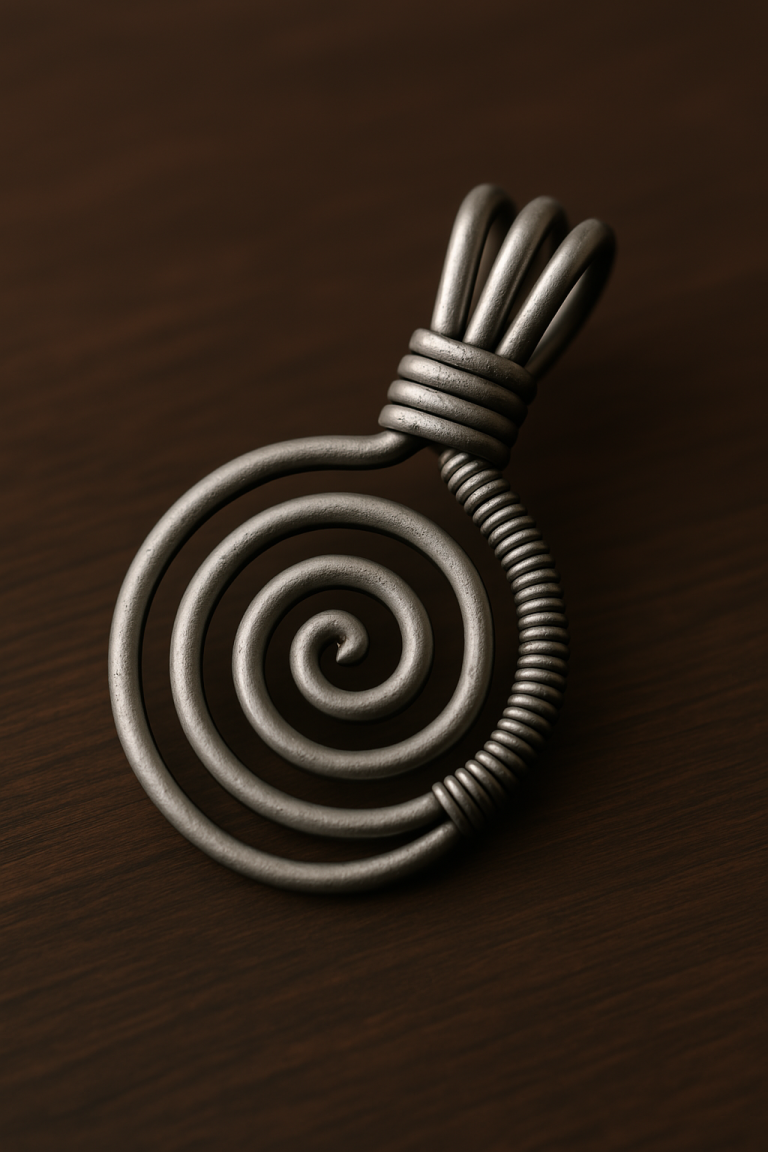
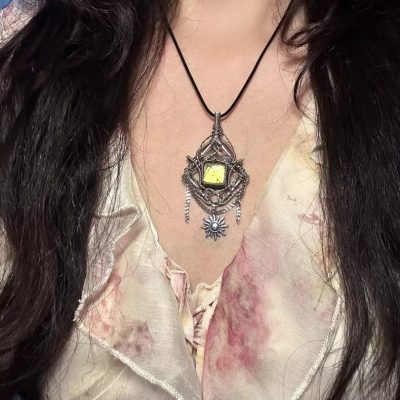 Golden labradorite wire-wrapped pendant necklace, vintage handmade design, unique niche jewelry piece.
Golden labradorite wire-wrapped pendant necklace, vintage handmade design, unique niche jewelry piece.